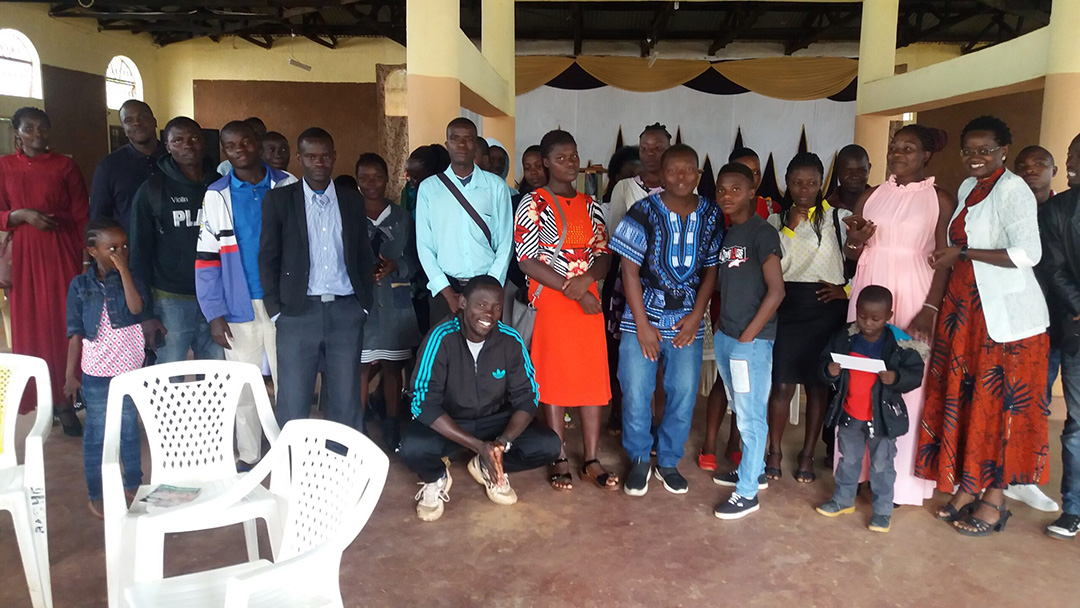Groups Educate, Empower Youth to Fight Disinformation
ADF STAFF
Growing up in internally displaced persons camps in northern Uganda in the 1980s, Hakim Owiny was surrounded by armed conflict.
There was suffering all around, but the sting of disinformation seared into his memory. Rumors spread that the people in the camps were violent, and those false characterizations fueled further waves of violence, division and unrest.
Today, Owiny is a 37-year-old civic educator who works in his Lamwo district community to teach young people about the benefits of inclusive dialogue and the dangers of disinformation.
“Disinformation is one of the most destructive camouflaged lethal weapons among people living in the shadows of conflict and political instability,” he told the Young African Leaders Initiative. “When people are subjected to a perpetual state of worry about their lives, it creates fertile ground for mis- and disinformation to breed.
“[Disinformation] is a cancer that eats away our capability to confront the truth. It plants hate among us that can easily spark confrontational behaviors and become an obstacle in building inclusive communities.”
Disinformation continues to run rampant amid a fast-developing media landscape on the continent. Experts such as Vanessa Manessong, who works with the technology and data journalism nonprofit Code for Africa, point to the harm it does to youth perspectives and engagement.
“Today, young people between 14 and 24 years of age are very present on social media, so they are more exposed to the risks of disinformation,” she said during a January 18 online panel discussion hosted by the Africa Center for Strategic Studies (ACSS).
“They are ideal targets for the recruiting activities of extremist groups via disinformation campaigns that are looking to attract vulnerable youth and radicalize them.”
Journalist Kunle Adebajo, who works with HumAngle Media based in Abuja, Nigeria, has documented extensive online activities by violent extremist groups such as Boko Haram and the Islamic State West African Province.
“We looked into how they use local languages and how they mix different languages to evade content moderation on various platforms,” he said during the panel discussion. “We realized that fact-checking disinformation or individual claims is not enough.
“Sometimes you only see one post in a larger disinformation network. When you attack that one post, there is still a Hydra-headed monster out there.”
Extremist groups are active on social media platforms, using Facebook, Telegram, WhatsApp and TikTok to radicalize and recruit.
“They use it to sermonize,” Adebajo said. “They also share very violent, radical e-books on these platforms. And they use bots, especially on Telegram, to automate some of these radicalization processes.”
Adebajo said HumAngle also has researched Russia’s disinformation efforts in Africa.
“They use local forums to spread propaganda,” he said. “We’ve seen how they buy Facebook groups or buy reputable media organizations to spread various forms of disinformation. They’ve also sponsored and mobilized protests here in Nigeria.”
New technology, including generative artificial intelligence (AI) has made it easier than ever to create disinformation. It can persuade and trick people, including journalists, to share it further.
“Extremists groups throughout the Sahel share violent messages using manipulated video and images,” Manessong said. “They use AI to produce these, and they’re becoming more and more sophisticated. It’s becoming more and more difficult to counter this.”
In Ghana, Harriet Ofori works with nonprofit Penplusbytes to conduct public awareness campaigns, train journalists and teach media literacy. In 2023, more than 2,000 people participated in its workshops.
“Disinformation is like a disease that is not going away any time soon,” Ofori said during the ACSS webinar. “It keeps evolving, so it is very important that we vaccinate ourselves.”


Comments are closed.